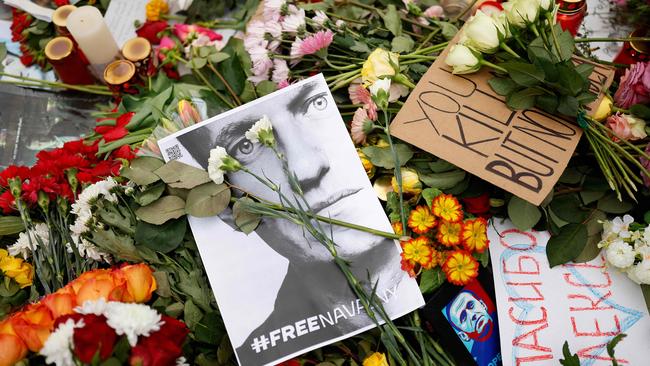
Navalny was one of the bravest men in the world. He was no absolute saint in his early politics. But his commitment to democracy and freedom was real. His biggest impact came as an anti-corruption campaigner and whistleblower. This bears out Milovan Djilas, the Yugoslav dissident, who observed that moral outrage was the beginning of everything.
In late 2020 Navalny was poisoned with novichok, the same substance that nearly killed former Russian intelligence agent Sergei Skripal and his daughter in Salisbury in 2018. Navalny nearly died but, amid a huge international outcry, was evacuated to Berlin for medical treatment. At this point a life of honourable exile, where he could not only prosper but look after his family, surely beckoned.
It’s right to pause to salute this cold, splendid, brilliant courage, this almost unbelievable courage, that led Navalny back to Russia to lead the fight for basic freedoms and democracy. He was arrested immediately and his death in an Arctic prison camp is more or less expected.
Navalny’s life reminds me of the great work of the Soviet dissident Vladimir Bukovsky. In his magnificent autobiography, To Build a Castle, Bukovsky recounts his life expectation as a dissident. He thought he might get a half-dozen short spells of liberty, in a lifetime
imprisonment in the Soviet Gulag. If freedom is to endure, it needs champions like this.
The timing of Navalny’s death may well have been calculated, perhaps to coincide with the Munich Security Conference, perhaps because the Russian sham presidential election is approaching and the message to the Russian people is: don’t think this Potemkin election is an opportunity for you to express any unauthorised political opinion.
Moscow claimed Navalny died from “sudden death syndrome” – there’s a Stalinist usage if ever there was one – but really it made no attempt to conceal what it did. The same was true of the poisoning of the Skripals. This brazenness is meant to terrify any enemy, or potential enemy, of the Russian state.
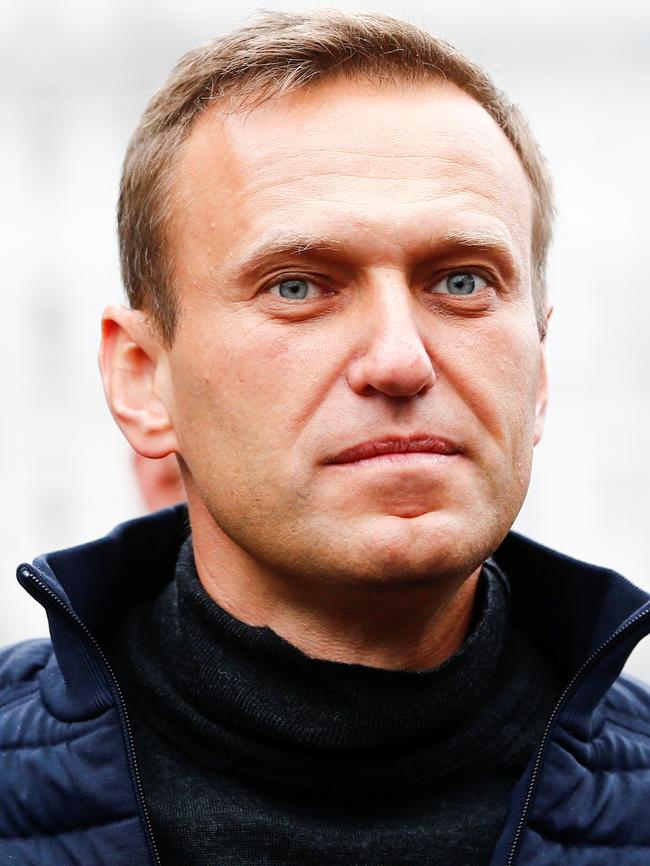
But the other motive reflects Putin’s communist background – he was a colonel in the KGB – and is straight out of George Orwell’s Nineteen Eighty-Four. The Putin regime pro forma denied it poisoned Skripal or mistreated Navalny but made no effort to convince anyone of this.
Remember that in Nineteen Eighty-Four Winston Smith clings to the right to say two plus two equals four, to recognise reality. Whereas Big Brother asserts the right to decide reality by power. Putin’s Russia demands you believe what it says about Navalny, or Skripal, or its infamous lies about Ukraine in Putin’s interview with Tucker Carlson. It doesn’t try to convince you of this intellectually. It wants rather to shape reality by power.
This is the classic ambition of the totalitarian. Czech dissident Milan Kundera wrote that the fight against totalitarianism is the battle of remembering against forgetting. All of which makes it simultaneously tragic, farcical and grotesque that some on the right find something to admire in Putin and his neo-tsarist authoritarianism, which is steeped in the old culture of Leninist communism. Putin doesn’t like gay people, affects a macho style and claims to be a champion of a superior Russian Orthodox version of Christianity. These claims are as credible as the word democratic that appeared in the formal title of so many of the old communist dictatorships, as in the Democratic People’s Republic of Korea (North Korea).
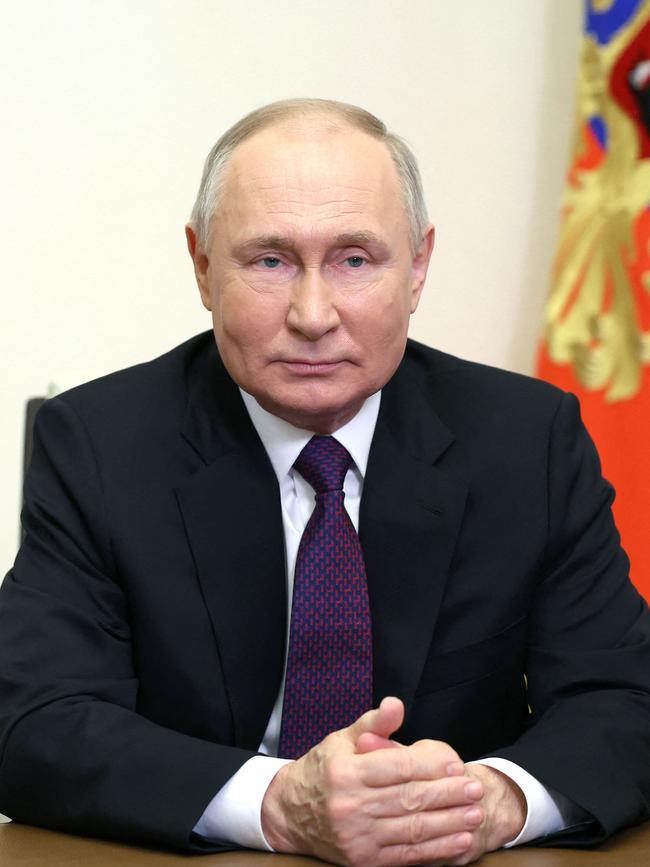
I’m as opposed as anyone to wokery, identity politics and all the other destructive nuttiness the contemporary left throws up, but the idea that any enemy of wokeism is a friend to traditional Western values is so deranged, so foolish, as to almost defy rational dealing.
It is a major tragedy that today in the US, Republican members of congress, obedient to Donald Trump, are withholding $US60bn ($91.6bn) of aid for Ukraine. This is moral and strategic madness.
Which brings us to the Albanese government. At the declaratory level, the Albanese government is the opposite of the Trump world view. It claims to be foursquare in solidarity with Ukraine and recently announced $50m more as a military aid financial donation. But even on the government’s own valuation our economic and military aid to Ukraine puts us just sixth among non-NATO donor nations.
Given the level of our wealth, and our strategic circumstances, that is pathetic. But it’s much worse than it seems. The government claims it has given $730m in military aid to Ukraine. This figure is complete baloney. The government decided early that military assistance to Ukraine would come out of defence spending, it wouldn’t be new money. So Defence has an overwhelming incentive to give Ukraine absolute junk and value it at absurd prices.
We gave them, for example, 28 M113 armoured personnel carriers that date back to the Vietnam War and that we never used in Iraq or Afghanistan, the real value of which was basically zero. We gave them obsolete ammunition we would otherwise have had to pay to dispose of.
We did give 110 useful Bushmaster vehicles from our large existing stockpile. But then somehow we claimed we were spending $40m just transporting them to Ukraine. We make Bushmasters ourselves and could easily manufacture 100 more and give 100 out of existing stocks to Kyiv. We didn’t do this because we won’t spend one new dollar on defence.
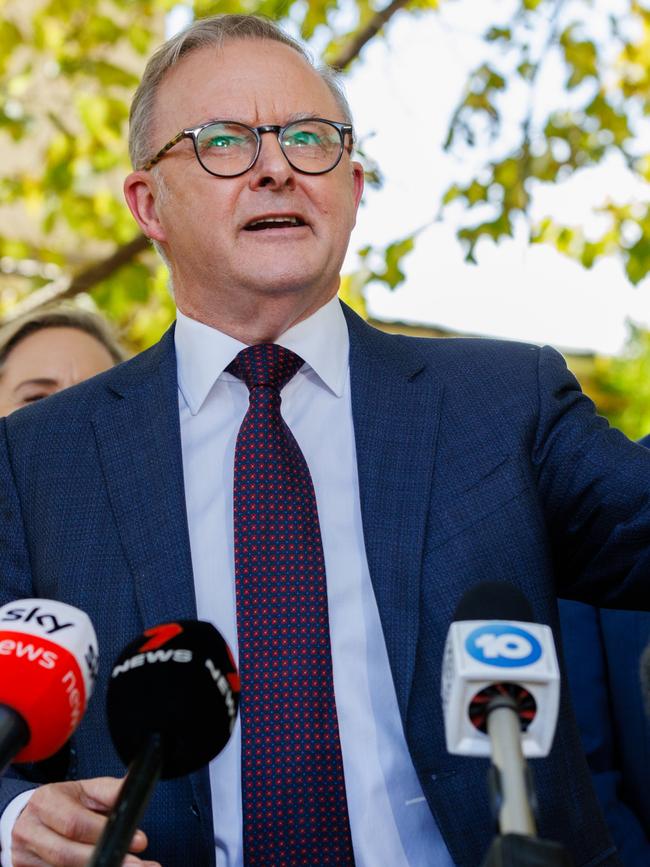
We wouldn’t give the Ukrainians Hawkei combat vehicles they asked for, which we also make, because their braking system at high speed is allegedly dodgy. What on earth? As though we know better than the Ukrainians what they can use, as though we consciously manufacture dodgy equipment for ourselves, as though allegedly dodgy brakes at high speed are a mortal danger to a nation desperate for military supplies.
We spent a huge amount of money supplying an air force Wedgetail command and control aircraft to Germany to help safeguard Polish air space and amazingly had to send 100 personnel to support it. Why would we do such an eccentric thing of such infinitesimal value to the Ukrainians? Because under longstanding arrangements the Finance Department compensates Defence for money spent on deployments.
We decided to ground our fleet of Taipan helicopters, though these are flown by numerous other nations. The Ukrainians desperately need helicopters to evacuate wounded soldiers from the battlefield. They asked us for the Taipans. Instead Defence, which normally takes 18 months and 29 committee meetings to blow its nose, buried in the earth hundreds of millions of dollars worth of helicopters at record speed.
Why the desperation not to give them to Ukraine? Because the Ukrainians might subsequently ask us for spare parts? Or were we worried the Ukrainians might actually use the Taipans effectively, leading to questions why we couldn’t do the same.
It adds up to a cynical, increasingly transactional Australian government, with very few discernible foreign policy principles, with no interest in making any strategic difference in Ukraine. Rather, it does whatever it thinks is the minimum necessary to satisfy the Americans that we’re on board. Alexei Navalny, we’re surely not.


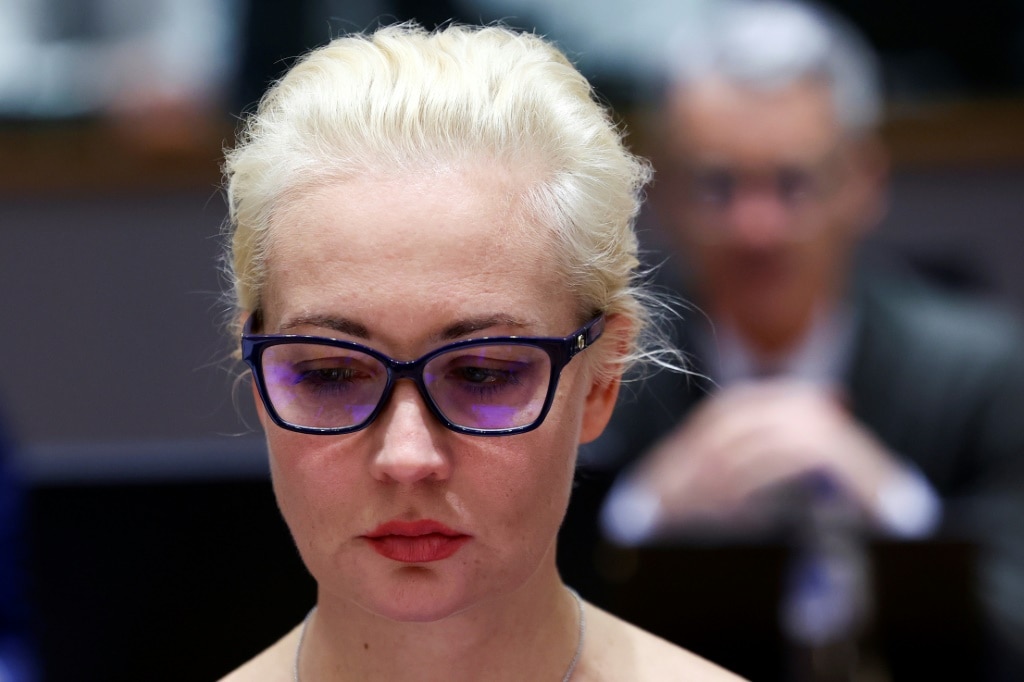

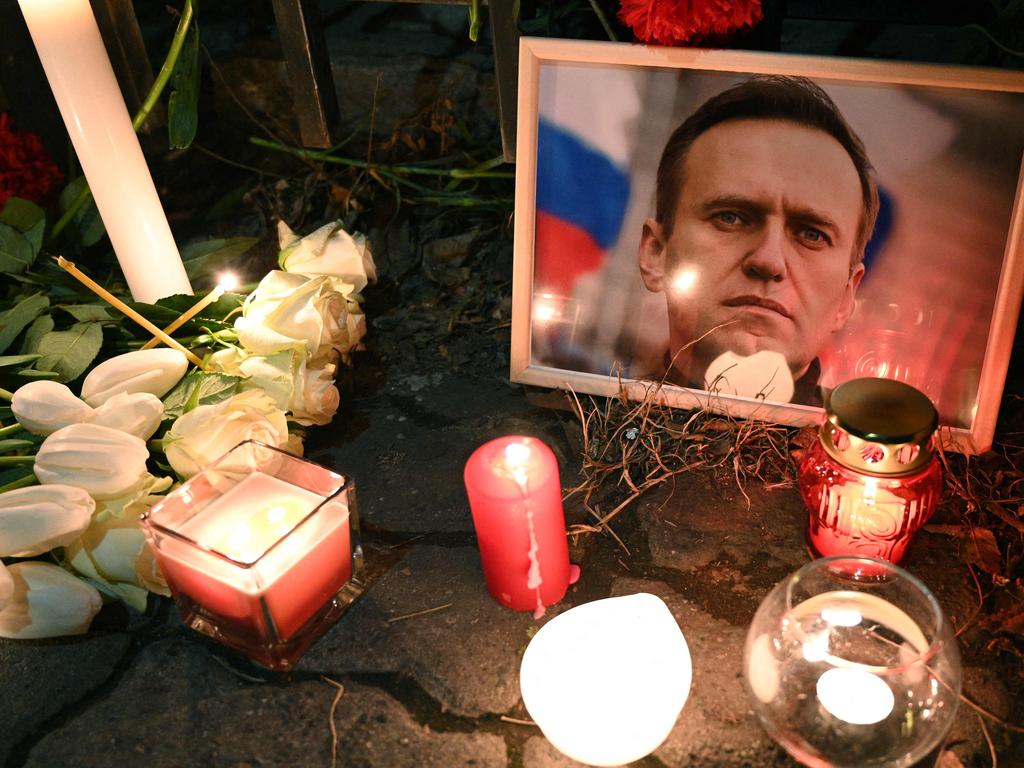



The death of Russian opposition leader Alexei Navalny in an Arctic prison camp shows up four truths of today: the extraordinary, enduring power of human courage; the savage, barbarous yet formidably threatening nature of Vladimir Putin’s Russia; the derangement of some of the Western right who fantastically admire Putin; and the shabby, hollow response of the Albanese government to the Russian invasion of Ukraine.